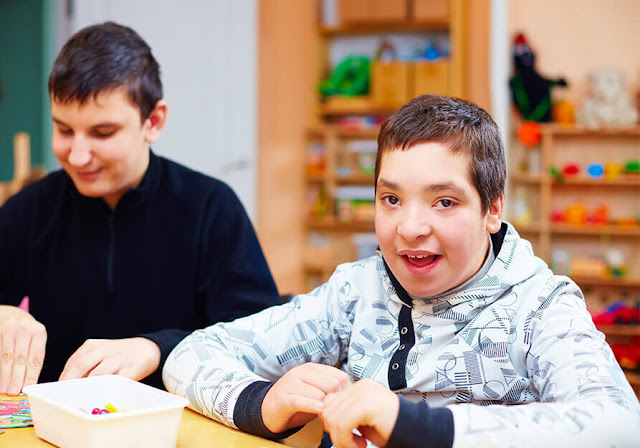How to Help a Child with Autism Prepare for School
Transitioning from your relaxed routines to school are often an enormous change for each child. Many children have a tough time adjusting to the current routine so it’d be way harder for somebody who is within the range of autism. It is even more terrifying if you have got a baby with anxiety or autism who struggles with transitions. They’ll be both excited about the college year and anxious about it, especially if it’s their first year attending school.
The good news is that there is much stuff you can do to assist ease the transition for your autistic child. belongings you can do some weeks or maybe a month before the primary day of college.
These tips and tricks will help reduce uncertainty and anxiety about visiting school, moreover as help your child establish a routine that sets them up for achievement and can help foster a collaborative and open exchange between you, your child and also the school.
- Visit the school premises – As a parent/guardian, you ought to visit the college along with your child for the primary few days. You’ll call the school and elicit permission to go to the varsity and observe the key areas. The key areas are the spaces that your child will use during the college hours – the playground, toilet, classroom, playroom etc. You’ll even be able to meet their teacher on a pupil free day. If you can’t enter school, you’ll be able to always walk to the doorway or round the gates to assist your child get wont to the new surroundings.
- Talk together with your child – because the new routine begins, this brings about uneasy feelings to your child. you’ll never be too prepared for this. Ask your child if they need any questions on school – and if there’s anything they’re scared or worried about. you’ll not have all the answers, but you may have some! Tell your child that everybody feels nervous about new and would face different experiences at some point – for all the super heroes out there, remind them that the only time we are able to be brave is after we are worried.
- Introduce them to new routines – It may be hard to start out a replacement routine. As it isn’t in their comfort safe place because the beginning of the year approaches, slowly start to introduce them to school related routines like sleep and eating patterns and college related activities into your child’s schedule. Doing so would allow your child to be comfortable with the new changes before starting school. you are doing this by introducing new bed and awaken times, daily meal schedules and activities that they’ll bump into while at school. Doing things outside of your normal routine also can help your child go with sudden changes.
- Always prepare ahead of time – Transitions could sometimes be hard on children who are on the Autism spectrum so showing them uniforms/clothing and packing lunches/snacks prior time will help make the transition to the new school life and with time it gets easier on yourself and your child. Take on a daily basis out of your week to meal prep, prepare lunches/snacks and organise daily uniforms in order that when it’s time to wake your child for varsity, it’s a simple transition from your home and to the college. Preparing materials sooner than time also will allow you to own overtime to comfort your child during what is also a scary time.
- Practising – Practising reception before your child starts school would help her feel accustomed to the new school routines and activities. It may also facilitate your spot any potential problems and find solutions before your child actually starts. For instance, putting a regular on, eating out from a lunch box, wearing school shoes or following rules. The labels or the sort of material can upset children with sensory sensitivities. If your child practises wearing the uniform prior to time, you’ll be able to figure out some way around these sensitivities. It would be as simple as removing labels, or finding another fabric your child can wear under the uniform to scale back irritation. You’ll be able to also hunt down NDIS support and NDIS providers like OSAN ability provides disability support, to assist you and your child with services to support children with disabilities.
- Let the varsity know – Writing a letter or email to your child’s teacher to elucidate your child’s diagnosis, strengths, weaknesses and interests. An Inclusion and Intervention Plan/Individualised Education Plan (IIP/IEP) meeting will likely not be scheduled immediately so this may be an excellent thanks to help your child’s teacher know what to expect or a way to best help your child. you’ll try this before the college year if you already know who your child’s teacher is going to be, or within the first week or two of college.
- Systematic approach – the simplest ways to organise your child for change will vary greatly betting on the intensity of the change further as your child’s cognitive and language ability. Whether you decide on a more academic approach (creating a story together) or a scientific increase of toleration, don’t forget to produce reinforcement! When new staff members begin working in our classrooms, we take tutelage to form sure they’re introduced systematically so students get to grasp them before they work independently within the classroom. we start by pairing new staff with staff the coed is extremely accustomed to.




Comments
Post a Comment